Джон Фаулз - The Tree
Здесь есть возможность читать онлайн «Джон Фаулз - The Tree» весь текст электронной книги совершенно бесплатно (целиком полную версию без сокращений). В некоторых случаях можно слушать аудио, скачать через торрент в формате fb2 и присутствует краткое содержание. Жанр: Современная проза, на английском языке. Описание произведения, (предисловие) а так же отзывы посетителей доступны на портале библиотеки ЛибКат.
- Название:The Tree
- Автор:
- Жанр:
- Год:неизвестен
- ISBN:нет данных
- Рейтинг книги:5 / 5. Голосов: 1
-
Избранное:Добавить в избранное
- Отзывы:
-
Ваша оценка:
- 100
- 1
- 2
- 3
- 4
- 5
The Tree: краткое содержание, описание и аннотация
Предлагаем к чтению аннотацию, описание, краткое содержание или предисловие (зависит от того, что написал сам автор книги «The Tree»). Если вы не нашли необходимую информацию о книге — напишите в комментариях, мы постараемся отыскать её.
The Tree — читать онлайн бесплатно полную книгу (весь текст) целиком
Ниже представлен текст книги, разбитый по страницам. Система сохранения места последней прочитанной страницы, позволяет с удобством читать онлайн бесплатно книгу «The Tree», без необходимости каждый раз заново искать на чём Вы остановились. Поставьте закладку, и сможете в любой момент перейти на страницу, на которой закончили чтение.
Интервал:
Закладка:
Achieving a relationship with nature is both a science and an art, beyond mere knowledge or mere feeling alone; and I now think beyond oriental mysticism, transcendentalism, 'meditation techniques' and the rest — or at least as we in the West have converted them to our use, which seems increasingly in a narcissistic way: to make ourselves feel more positive, more meaningful, more dynamic. I do not believe nature is to be reached that way either, by turning it into a therapy, a free clinic for admirers of their own. sensitivity. The subtlest of our alienations from it, the most difficult to comprehend, is our need to use it in some way, to derive some personal yield. We shall never fully understand nature (or ourselves), and certainly never respect it, until we dissociate the wild from the notion of usability — however innocent and harmless the use. For it is the general uselessness of so much of nature that
lies at the root of our ancient hostility and indifference to it.
There is a kind of coldness, I would rather say a stillness, an empty space, at the heart of our forced co-existence with all the other species of the planet. Richard Jefferies coined a word for it; the ultra-humanity of all that is not man. . not with us or against us, but outside and beyond us, truly alien. It may sound paradoxical, but we shall not cease to be alienated — by our knowledge, by our greed, by our vanity — from nature until we grant it its unconscious alienation from us.
I am not one of those supreme optimists who think all the world’s ills, and especially this growing divide between man and nature, can be cured by a return to a quasi-agricultural, ecologically 'caring’ society. It is not that I doubt it might theoretically be so cured, but the possibility of the return defeats my powers of imagination. The majority of Western man is now urban, and the whole world will soon follow suit. A very significant tilt of balance in human history is expected by the end of the coming decade: over half of all mankind will by then have moved inside towns and cities. Any hope of reversing that trend, short of some universal catastrophe, is as tiny and precarious as the Monarch butterflies I watched, an autumn or two ago, migrating between the Fifth Avenue skyscrapers in central Manhattan. All chance of a close acquaintance with nature, be it through intellect and education, be it in the simplest way of all, by having it near at hand, recedes from the many who already effectively live in a support system in outer space, a creation of science, and without means to escape it, culturally or economically.
But the problem is not, or only minimally, that nature itself is in imminent danger or that we shall lose touch with it simply because we have less access to it. A number of species, environments, unusual ecologies are in danger, there are major pollution problems; but even in our most densely populated countries the ordinary wild remains far from the brink of extinction. We may not exaggerate the future threats and dangers, but we do exaggerate the present and actual state of this global nation — under-estimate the degree to which it is still surviving and accessible to those who want to experience it. It is far less nature itself that is yet in true danger than our attitude to it. Already we behave as if we live in a world that holds only a remnant of what there actually is; in a world that may come, but remains a black hypothesis, not a present reality.
I believe the major cause of this more mental than physical rift lies less in the folly or onesidedness of our societies and educational systems, or in the historical evolution of man into a predominantly urban and industrial creature, a thinking termite, than in the way we have, during these last hundred and fifty years, devalued the kind of experience or knowledge we loosely define as art, and especially in the way we have failed to grasp its deepest difference from science. No art is truly teachable in its essence. All the knowledge in the world of its techniques can provide in itself no more than imitations or replicas of previous art. What is irreplaceable in any object of art is never, in the final analysis, its technique or craft, but the personality of the artist, the expression of his or her unique and individual feeling. All major advances in technique have come about to serve this need. Techniques in themselves are always reducible to sciences, that is, to learnability. Once Joyce has written, Picasso painted, Webern composed, it requires only a minimal gift, besides patience and practice, to copy their techniques exactly, yet we all know why this kind of technique-copy, even when it is so painstakingly done — for instance, in painting — that it deceives museum and auction-house experts, is counted worthless beside the work of the original artist. lt is not of him or her, it is not art, but imitation.
As it is with the true ’making’ arts, so it is with the other aspects of human life of which we say that full knowledge or experience also requires an art — some inwardly creative or purely personal factor beyond the power of external teaching to instill or science to predict. Attempts to impart recipes or set formulae as to practice and enjoyment are always two-edged, since the question is not so much whether they may or may not enrich the normal experience of that abstract thing, the normal man or woman, but the certainty that they must in some way damage that other essential component of the process, the contribution of the artist in this sense — the individual experiencer, the 'green man' hidden in the leaves of his or her unique and once-only being.
Telling people why, how and when they ought to feel this or that — whether it be with regard to the enjoyment of nature, of food, of sex, or anything else — may, undoubtedly sometimes does, have a useful function in dispelling various kinds of socially harmful ignorance. But what this instruction cannot give is the deepest benefit of any art, be it of making, or of knowing, or of experiencing: which is self-expression and self-discovery. The last thing a sex-manual can be is an ars amoris — a science of coupling, perhaps, but never an art of love. Exactly the same is true of so many nature-manuals. They may teach you how and what to look for, what to question in external nature; but never in your own nature.
In science greater knowledge is always and indisputably good; it is by no means so throughout all human existence. We know it from art proper, where achievement and great factual knowledge, or taste, or intelligence, are in no way essential companions; if they were, our best artists would also be our most learned academics. We can know it by reducing the matter to the absurd, and imagining that God, or some Protean visitor from outer space, were at one fell swoop to grant us all knowledge. Such omniscience would be worse than the worst natural catastrophe, for our species as a whole; would extinguish its soul, lose it all pleasure and reason for living.
This is not the only area in which, like the rogue computer beloved of science fiction fans, some socially or culturally consecrated proposition — which may be true or good in its social or cultural context — extends itself to the individual; but it is one of the most devitalizing. Most mature artists know that great general knowledge is more a hindrance than a help. It is only innately mechanical, salami-factory novelists who set such great store by research; in nine cases out of ten what natural knowledge and imagination cannot supply is in any case precisely what needs to be left out. The green man in all of us is well aware of this. In practice we spend far more time rejecting knowledge than trying to gain it, and wisely. But it is in the nature of all society, let alone one deeply imbued with a scientific and technological ethos, to bombard us with ever more knowledge — and to make any questioning or rejection of it
Читать дальшеИнтервал:
Закладка:
Похожие книги на «The Tree»
Представляем Вашему вниманию похожие книги на «The Tree» списком для выбора. Мы отобрали схожую по названию и смыслу литературу в надежде предоставить читателям больше вариантов отыскать новые, интересные, ещё непрочитанные произведения.
Обсуждение, отзывы о книге «The Tree» и просто собственные мнения читателей. Оставьте ваши комментарии, напишите, что Вы думаете о произведении, его смысле или главных героях. Укажите что конкретно понравилось, а что нет, и почему Вы так считаете.

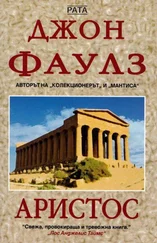
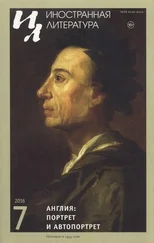
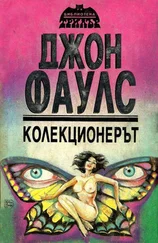
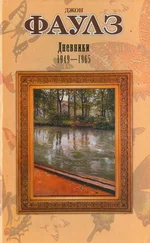

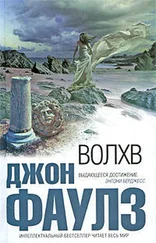
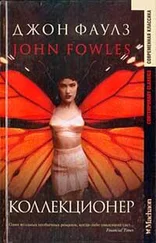
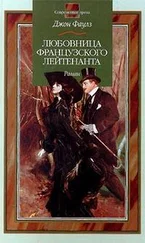
![Джон Фаулз - Вылазка в действительность [антология]](/books/431648/dzhon-faulz-vylazka-v-dejstvitelnost-antologiya-thumb.webp)
![Джон Фаулз - Мантисса [litres]](/books/438194/dzhon-faulz-mantissa-litres-thumb.webp)